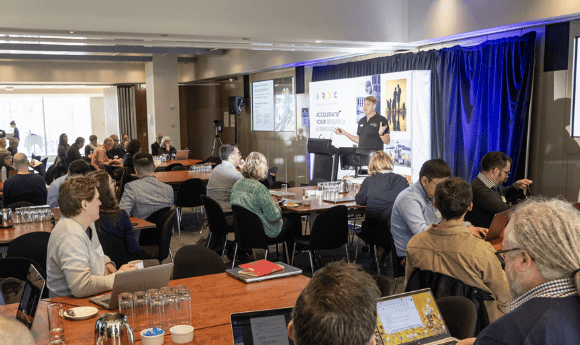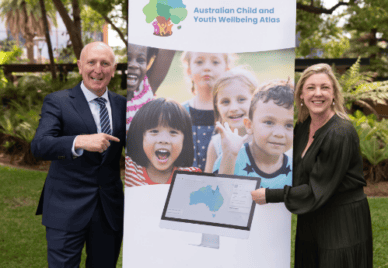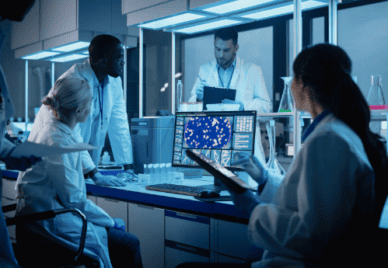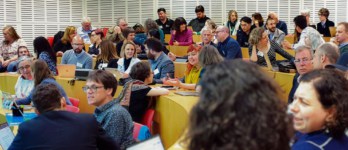
The ARDC Digital Research Skills Summit was held once again in May 2024, bringing together Australia’s digital research trainers and skills professionals who work to uplift digital research skills.
The Summit kicked off on Tuesday 21 May with the 2024 ARDC Leadership Forum, where experts discussed the importance of a highly skilled research infrastructure workforce and ways to address digital research skills gaps. See the summary of day one and the recording.

22 May: Building Community Around Research Infrastructure
Day 2 of the Skills Summit brought together leaders from the 3 ARDC Thematic Research Data Commons as well as researchers and representatives from skills training communities. During the morning session, participants heard from partners and researchers involved in the Thematic Research Data Commons:
- People Research Data Commons for health and medical research
- Planet Research Data Commons for earth and environmental science research
- HASS and Indigenous Research Data Commons.
The speakers gave overviews of their projects, including:
- who the target users and beneficiaries of their infrastructure are
- existing skills and skills gaps of their users
- the challenges that prevent users from fully engaging with the research infrastructure
- associated strategies to overcome these challenges to increase user engagement, upskilling and effective use of their infrastructure.
These introductory presentations included:
People Research Data Commons
Health Studies Australian National Data Asset (HeSANDA): Nemanja Zivanov, Katie Ozdowska and Mat Ishac presented HeSANDA’s work on building a national infrastructure to support access and sharing of health research data, primarily for clinical trials and cohort studies. Watch the recording.
National Health Data Hub (NHDH): Caitlin Szigetvari presented her work on the centralised de-identified linkage system that aims to improve access to shared health research data for government and non-government researchers by streamlining the transfer of FAIR health data between repositories. Watch the recording.

Planet Research Data Commons
Biosecurity Commons: Dr James Camac presented on their online collaborative analytics platform working to provide decision support related to biosecurity risk and response by translating high-end scientific methods to professionals in the biosecurity sector. Watch the recording.
Open EcoAcoustics: Professor Paul Roe discussed their platform tools and associated user groups engaged in the use of passive acoustic monitoring to monitor threatened species and ecological conditions. Watch the recording.
WildObs Australia: Dr Matthew Luskin presented on their plans to provide a platform for processing and analysing Australia’s currently siloed camera trap data. Watch the recording.
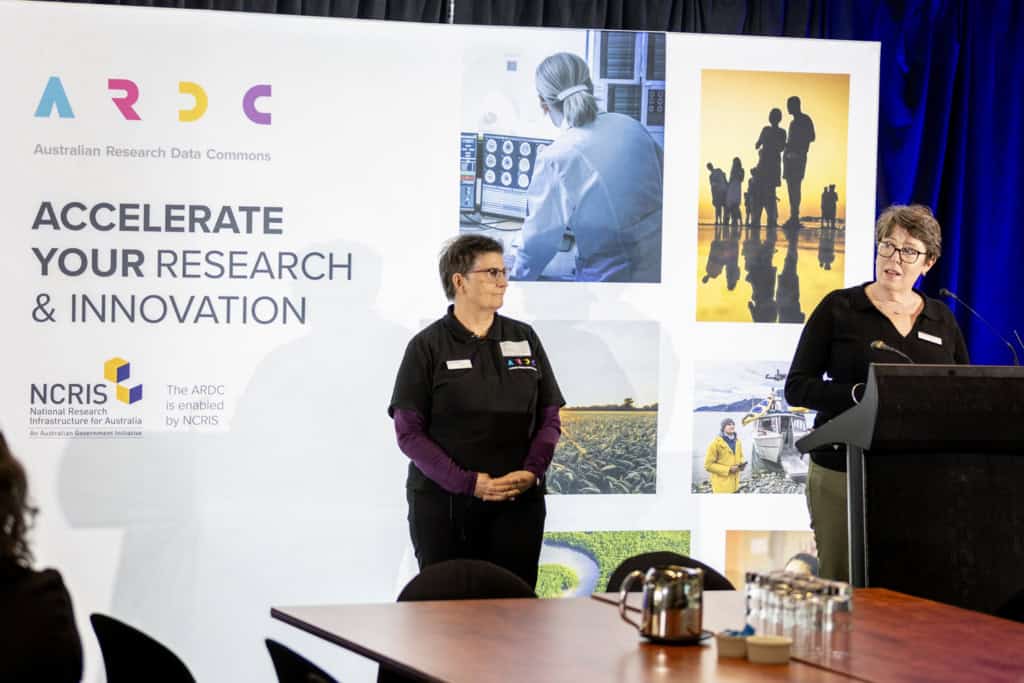
HASS and Indigenous Research Data Commons
The ARDC’s Jenny Fewster and Kit Greenhill provided an overview of Language Data Commons of Australia (LDaCA), Improving Indigenous Research Capabilities (IIRC), Social Sciences, Australian Internet Observatory, and Australian Creative Histories and Futures. They also highlighted what they learned about researchers’ digital skills needs during their co-design process, which involved 10 online workshops and around 600 registrations. Themes covered were:
- ways researchers preferred to have skills material delivered
- who researchers believed should be receiving and imparting knowledge
- conditions researchers said were necessary for them to improve skills.
Ways the research data commons is addressing these skills challenges were outlined, including the HASS and Indigenous Research Data Commons Indigenous Internship programme, the HASS and Indigenous RDC Computational Skills Summer School and annual Symposium. Watch the recording.

Lightning talks
Watch the recording of the lightning talks.
- Ann Backhaus (Pawsey) introduced Pawsy’s user-centric learning framework.
- Patrick Taylor (RMIT) highlighted onboarding, workshops and building networks to maximise the return of the RMIT / AWS super-computing platform.
- Dr Giorgia Mori (Sydney Informatics Hub, University of Sydney) discussed the challenges of user training that extend beyond subject matter expertise.
- Liz Stokes (ARDC) discussed The Carpentries as a global example of effective training development and delivery.
Later discussions addressed the challenges faced by users with strategies offered to solve those challenges. Overall, those embarking on national infrastructure projects had a useful introduction to the ecosystem of ARDC activities and the associated skills-related factors impacting the uptake of digital infrastructure. Current trainers were also introduced to a wide range of people who are starting to explore research infrastructure through a skills needs lens. While many shared challenges were identified as well as general paths toward solutions, it was clear that future work will need to be tailored to each of the diverse research domains represented.
Watch the recording of Building Community Around Research Infrastructure (use the bookmarks to jump to each section), view the combined slide deck for day 2 and see the group activity summary.
23 May: Carpentry Connect 2024
On Thursday, a hybrid Carpentry Connect brought together trainer communities across Australia and New Zealand for knowledge exchange, shared learning and community building. The central face-to-face hub in Naarm/Melbourne was joined by in person satellite hubs in Perth, and across New Zealand — Wellington, Dunedin and Auckland, as well as an online audience. Co-locating Carpentry Connect with the Skills Summit helped Carpentries community appreciate a broader range of ARDC’s offerings. The program of community-oriented presentations, discussions and workshops gave an insight into the governance and community scaffolding to deliver Carpentries workshops. See links to the day 3 recording and the combined slides.
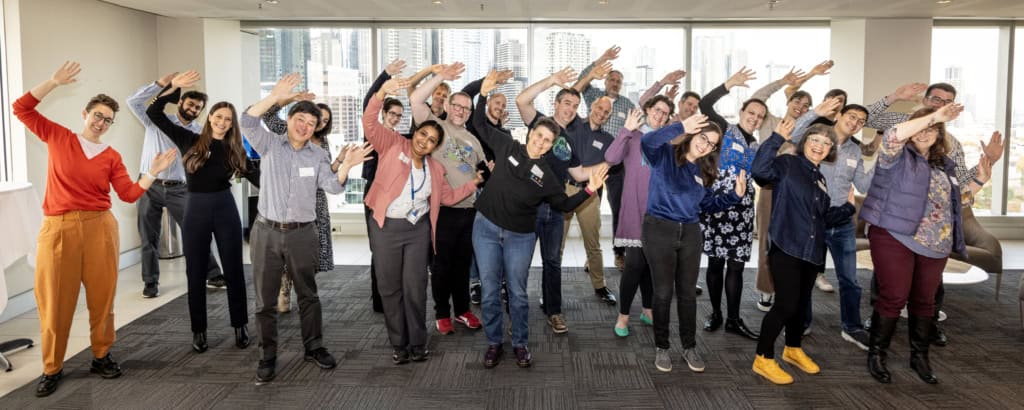
Highlights
Dr Pao Corrales shared her voyage through The Carpentries from tidyverse certification, R-Ladies in Buenos Aires, and supporting new instructors through certification by focusing group effort on translating Carpentries lessons into Spanish. Watch Pao’s talk.
Dr Tom Saunders (University of Auckland) asked provocative questions from a place of genuine concern for what we teach, how we teach it and how to engage instructors to become more active participants in the community. Watch Tom’s talk.
Dr Nisha Ghatak (NeSI) provided an overview of community governance via the Carpentries Board of Directors, which was followed up in local hub discussion sessions “The Board is Listening”. Watch Nisha’s talk.
Dr Sara King (AARNet) said, “As a Carpentries Instructor Trainer, it was good to be one of the established members in the Carpentries and have that role introducing the community to interested newcomers.”
Dr James Foster (CSIRO) said, “I appreciated the in-person event, it was great to be with like-minded people, I got good energy from reconnecting with a number of people, including a humanities scholar (not someone I’d otherwise connect with) so it was valuable to have those unexpected connections.”

Lightning talks
- Dr Mark Crowe (QCIF, QLD) showed us how to use a Github template and a password manager to massively simplify a Carpentries workshop website and reporting in 5 minutes!
- Dr Paul Harrison (Bioinformatics, Monash University, VIC) charted Monash’s Data Fluency Program inspired by Software Carpentry and developing in parallel to Data Carpentry. In 2023 they delivered 95 Carpentries-style workshops reaching 1300+ learners.
- Dr Valentina Hudato-McCormick (CSIRO, WA) demystified the Software Carpentry Governance committee and set the stage for two community feedback discussions in Perth and Melbourne on the Software Carpentry Git lesson.
- Dr Emily Barker, an HPC Engineer from The University of Western Australia,shared an overview of customised workshops throughout WA. Research Computing Workshops use HPC Carpentries and Software Carpentry. The Curtin Institute of Data Science teaches Software and Data Carpentries in “carpentries-inspired workshops.” ADACS – has been teaching Carpentries format but only recently started submitting content to the Carpentries Incubator. Dr Valentina Hurtado-McCormick (CSIRO) is looking at how to teach data science skills to peers in CSIRO. At the Pawsey SuperComputing Research Centre, Ann Backhaus and Fathima Haseem are using the ethos of Carpentries’ shared values in mentoring and internship programs.
- Dr Nisha Ghatak shared NeSI’s national training calendar, incorporating HPC training delivering Software Carpentry and Machine Learning: Image Analysis.
- Dr Murray Cadzow covered Carpentries activity at the University of Otago, pairing up with NeSI and Genomics Aotearoa, and the Otago Bioinformatics Spring School.
- Dr Tom Saunders surveyed Carpentries curricula taught at the University of Auckland, highlighting a Machine Learning workshop which combines two incubator workshops: Introduction to Scikit learn and Introduction to Deep Learning.
- Finally, ARDC’s Liz Stokes shared observations from the ARDC Carpentries Partnership 2022-2023, how the partnership has adapted to changing needs and capacity to contribute to a partnership.
Watch the recordings of the Lightning Talks.
Collaboration and support are key concerns for The Carpentries Community
- Community collaboration and engagement sessions in Perth, Melbourne and online for New Zealand brought the focus back to local collaboration after informative keystories and lightning talks.
- Participants shared their feedback and ideas with The Carpentries’ Board of Directors to improve support for trainers, instructors and learners.
Leveraging the power of hybrid
- By alternating short online presentations with Hub-based discussion sessions, participants were able to build connections across various organisations in their local areas.
- Candid lightning talks showed much greater evidence of Carpentries-style workshops than is officially reported, in contrast to the global trend.
- Strengthened community bonds and fostered partnerships within the Carpentries network.
Facing challenges
- Interactive sessions in Perth and Melbourne gathered community input to update and improve the Git training curriculum.
Opportunities for incorporating new curriculum to address challenges by generative AI were discussed.
Watch the recording of the Carpentry Connect dat at the Skills Summit.
What Participants Are Saying About the Skills Summit
Dr Nisha Ghatak (NeSI) wrote a wrap up article about Carpentry Connect 2024. In the article she wrote, “The wrap-up session for New Zealand sparked powerful discussions on supporting new learning pathways in the GLAM and Library Carpentries space. Attendees emphasised the importance of clear takeaways from networking events, gaining more support in training through workshops and skill up sessions. There was also a brief discussion on planning for Carpentry Connect 2025 in New Zealand, highlighting the value of a hybrid event to support researchers who may not have access to travel funding.” Read Dr Ghatak’s article.
Kyla Cbell, Manager, CSIRO Learning Academy, posted on LinkedIn about her experience at the Summit.
We look forward to seeing our digital research training community again at our next Skills Summit.
Learn more about the ARDC’s Skills and Workforce Development initiative.
View some photos from the ARDC Digital Research Skills Summit.







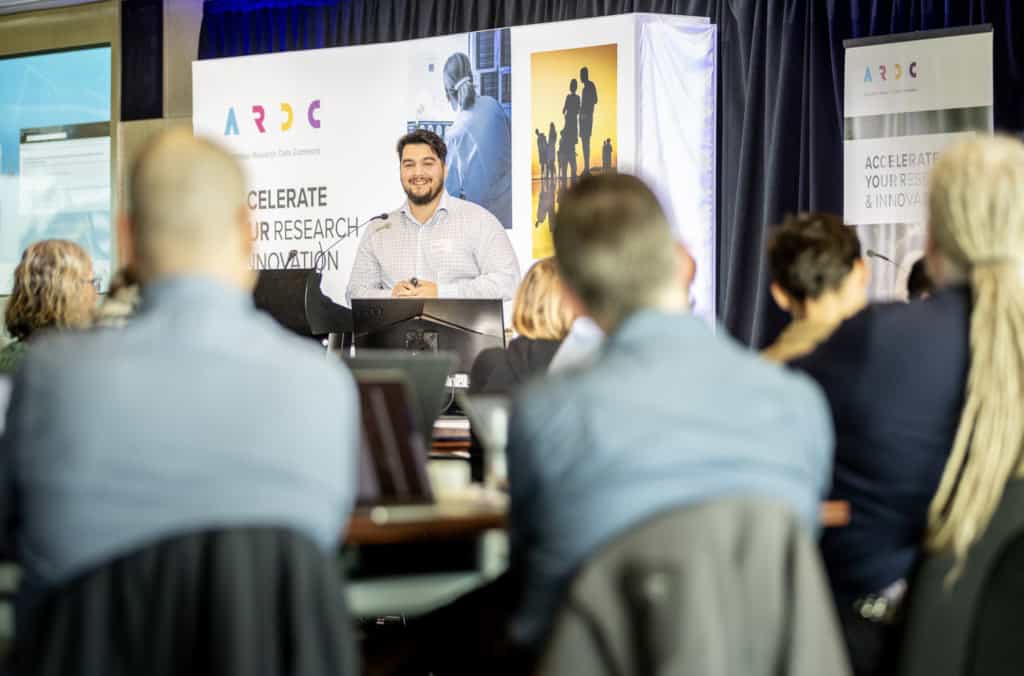





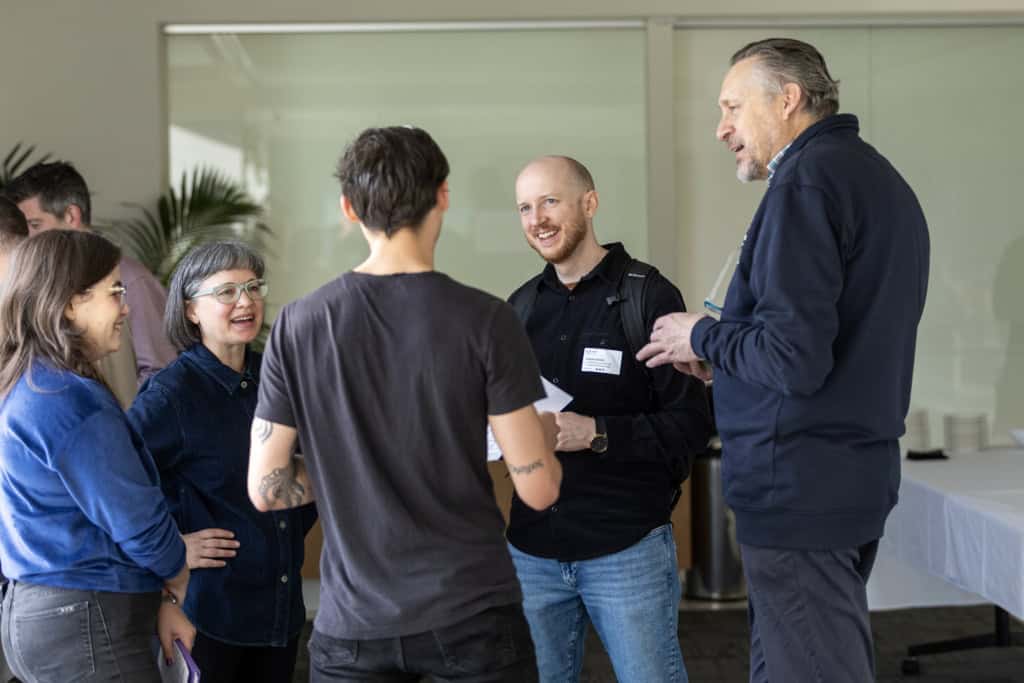
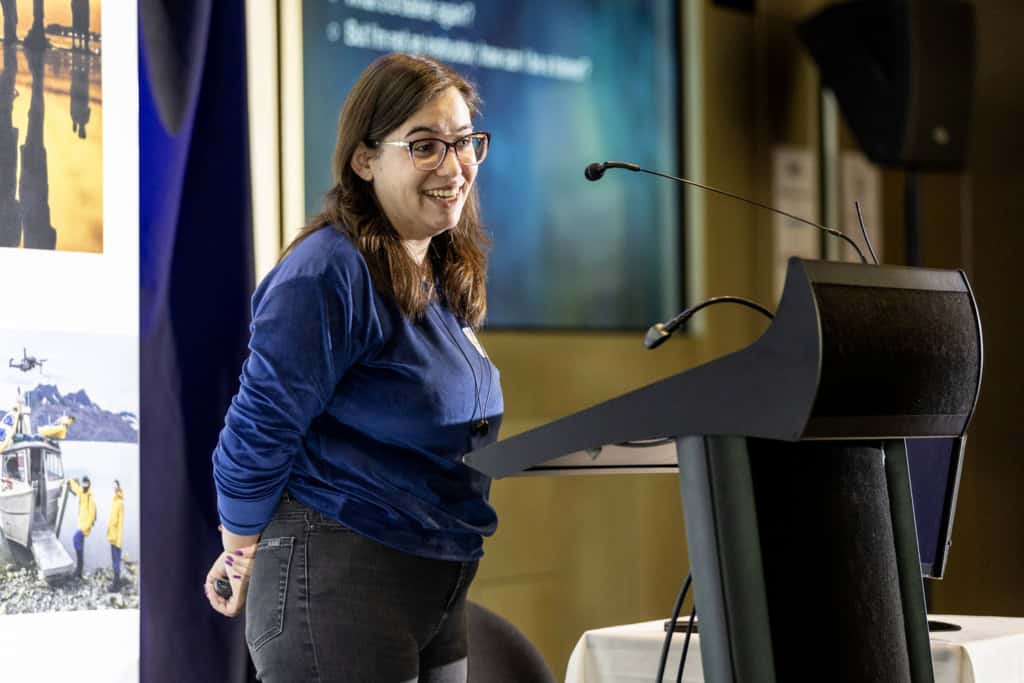
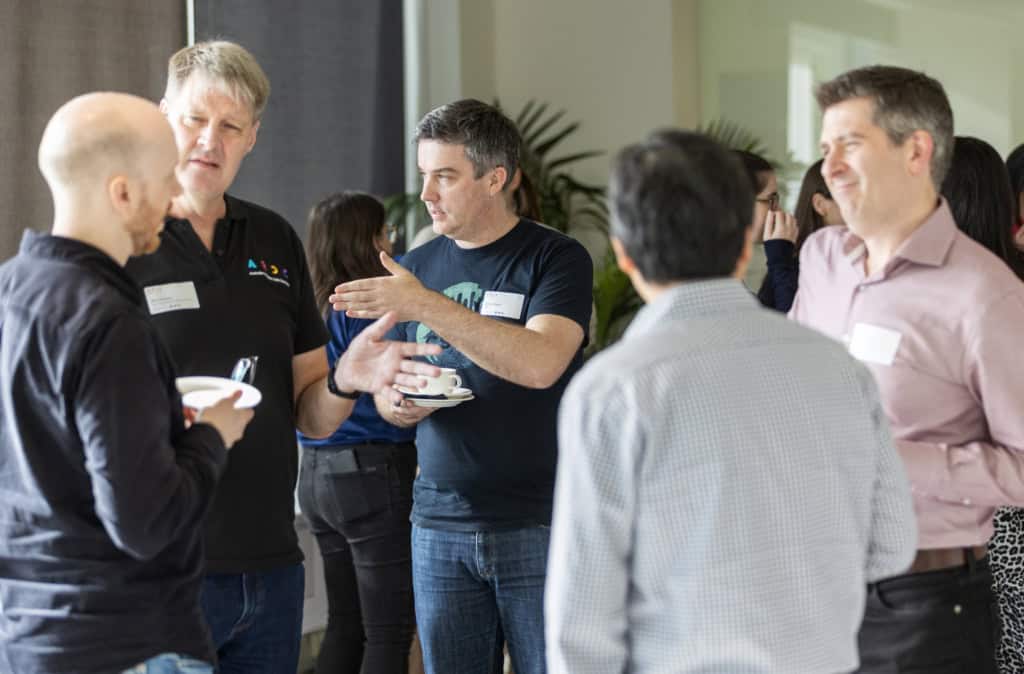


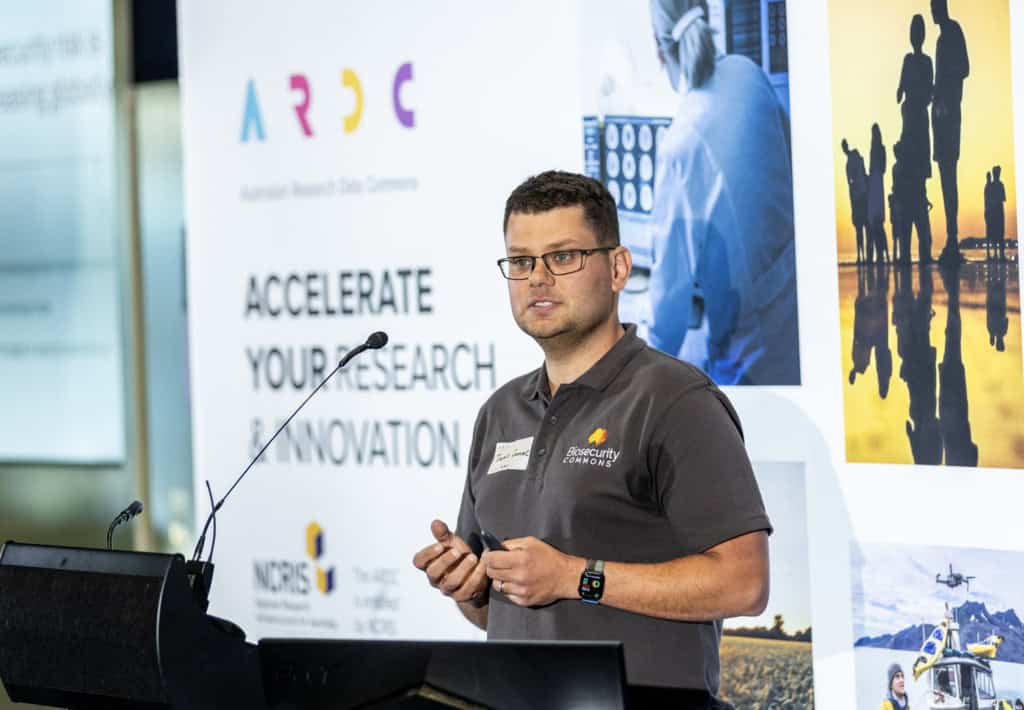
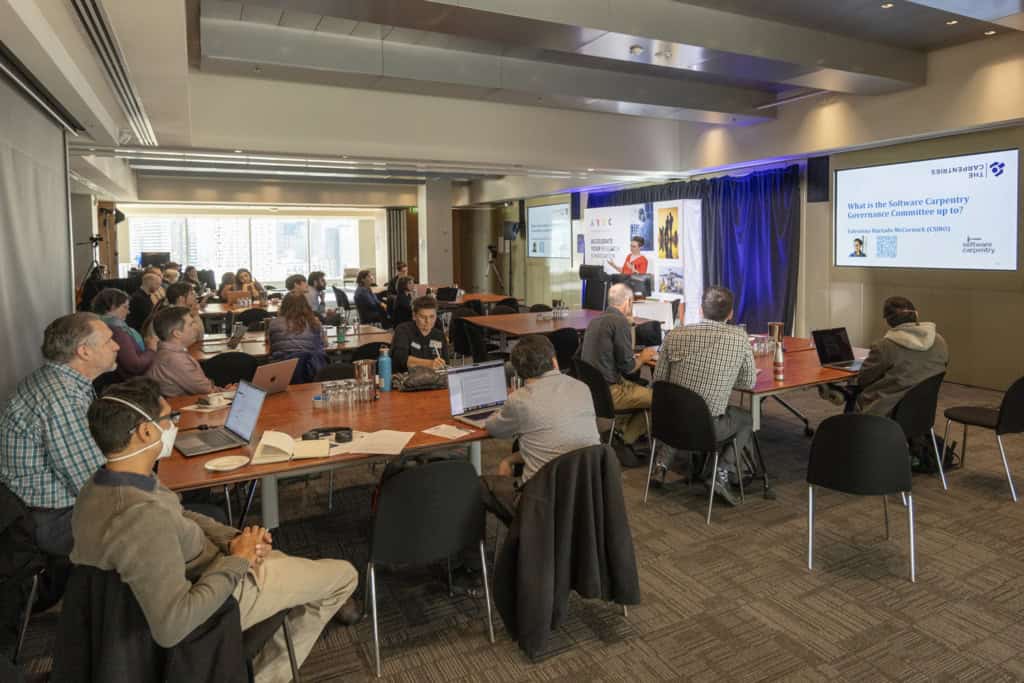
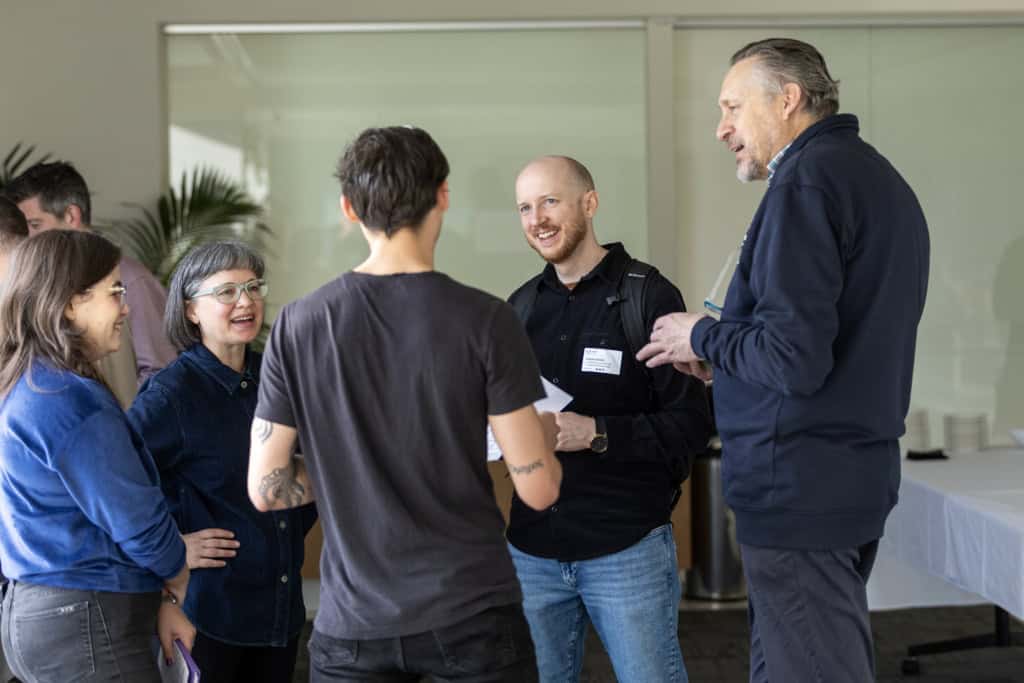
The ARDC is enabled by the National Collaborative Research Infrastructure Strategy (NCRIS) to support national digital research infrastructure for Australian researchers.
Author
Categories
Related Program
Related Projects
Related News & Events
- I Can’t Believe I Survived Without It: Learning Data and Software Skills with The Carpentries
- Launching DReSA: A Portal for Digital Research Training in Australasia
- The Skilled Research Infrastructure Workforce: Pathways and Support to Enable Effective Research
- Preparing for Your First Workshop: A Recap of the First AU NZ Carpentries Community Call
- Summer School Shares Computational Skills for HASS and Indigenous Research
- Empowering HASS and Indigenous Researchers with Essential Computational Skills
- Digital Research Training Insights from ARDC Work Placement Student, Dr Louise Fisher
- Digital Research Skills Trainers Convene at the 2023 ARDC Skills Summit
- Building Digital and Data Trainers at CSIRO
- Australian Supercomputing and Research Data Leaders Collaborate to Expand Access to Skills Training
Related Case Studies


